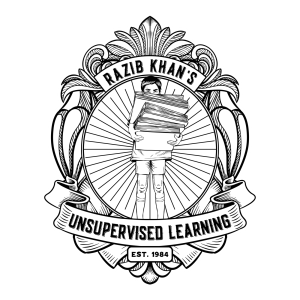
Razib Khan's Unsupervised Learning
Science:Life Sciences

Wilfred Reilly: a social scientist in the culture wars
 2024-02-08
2024-02-08
In this episode, Razib talks to Wilfred Reilly, political scientist, author and fearless cultural commentator. Reilly holds a Ph.D. in political science from Southern Illinois and a J.D. from the University of Illinois. Raised in a working-class neighborhood on Chicago’s South Side, he discusses his ten-year diversion from academia, including his stints as a canvasser for the gay rights group the Human Rights Campaign and a corporate salesperson. A prolific public intellectual, Reilly is the author of Lies My Liberal Teacher Told Me, Taboo: 10 Facts [You Can't Talk About] and Hate Crime Hoax: How the Left Is Selling a Fake Race War.
Razib asks what it means to be a “black conservative,” and Reilly responds that the term brackets all black intellectuals who dissent from the progressive orthodoxy, ranging from rock-ribbed right-wingers like Thomas Sowell to moderate liberals like John McWhorter. They also discuss the excesses of Civil Rights legislation and Richard Hanania’s thesis in The Origins of Woke: Civil Rights Law, Corporate America, and the Triumph of Identity Politics that the legal system is geared toward racial progressivism. Reilly believes that wokeness cannot be rolled back until that institutional and legal framework driving for radicalism is neutered.
Segueing into the domain of political science, Razib and Reilly discuss the difference between avowed preferences and revealed preferences around issues like abortion and pornography. Both agree ordinary Americans strongly disagree with ideologues who hold extreme policies. Reilly also points out the strangeness that many of the most violent and visible activists during the BLM protests were white, and he holds these are the people who are buying books by radical activist professors like Ibram Kendi, who meanwhile has little real influence among black academics.
They also discuss diversity within the black American community, including Laurence Otis Graham’s exploration of socioeconomic status in Our Kind of People: Inside America’s Black Upper Class. Reilly talks about his more upper-class mother’s attempt to inculcate elitism within him, and its failure to stick. Then Razib moots the question of the differences between “American Descendents of Slaves” (ADoS), Africans and Caribbeans, and the fact that Harvard refuses to survey its black students by sub-demographic. Finally, Reilly expounds at length on his “anti-doomer” views, arguing that economic, social and environmental catastrophism is almost always wrong, as well a providing a hearty defense of the cultural richness and economic dynamism of the Midwest.
For the first time ever, parents going through IVF can use whole genome sequencing to screen their embryos for hundreds of conditions. Harness the power of genetics to keep your family safe, with Orchid. Check them out at orchidhealth.com.
More Episodes
 2024-04-24
2024-04-24
 2024-03-22
2024-03-22
 2024-03-15
2024-03-15
 2024-02-23
2024-02-23
 2024-01-30
2024-01-30
Create your
podcast in
minutes
- Full-featured podcast site
- Unlimited storage and bandwidth
- Comprehensive podcast stats
- Distribute to Apple Podcasts, Spotify, and more
- Make money with your podcast
It is Free
- Privacy Policy
- Cookie Policy
- Terms of Use
- Consent Preferences
- Copyright © 2015-2024 Podbean.com




